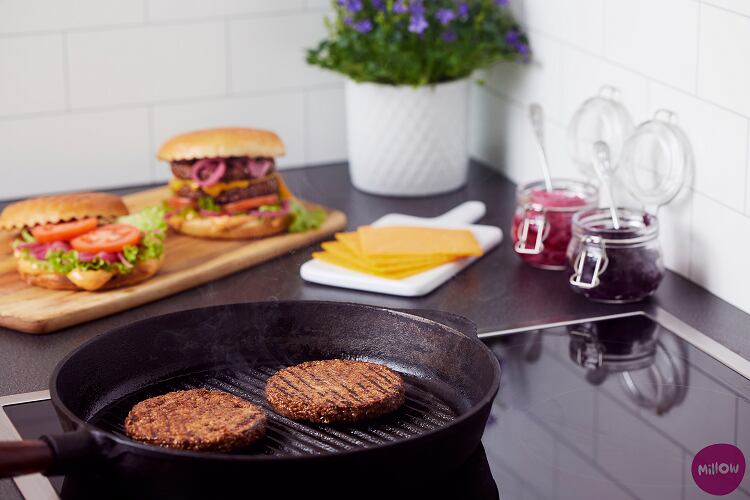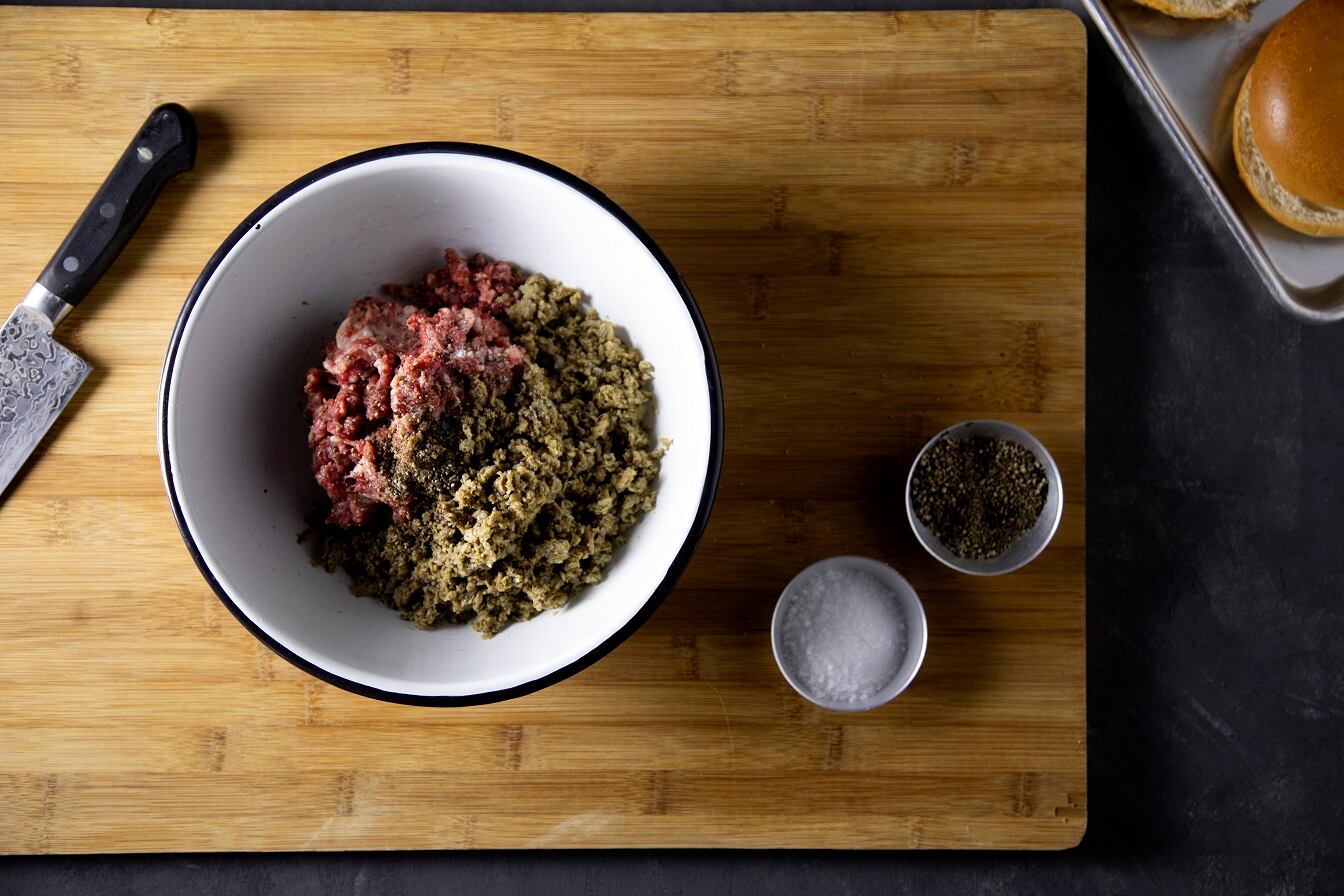Led by a new division, Marlow Ingredients, Marlow mycoprotein will be made available firstly in Europe and then internationally.
What’s behind the move? Quorn claims to be the UK’s No.1 meat-free brand, enjoying its tenth month in a row of volume and value share growth.
But growth in meat alternatives and the overall plant-based foods category is decelerating in Europe, slowing from 15% in 2021 to 6% in 2022, according to the most recent retail sales data. Last year meat alternatives enjoyed a mere 6% market share of the total retail pre-packaged meat category. The space – for a host of reasons including taste, price, and scalability bottlenecks – is struggling to move from niche to mainstream.
It is in this context that Marlow Foods has thrown its hat into the ingredient supplier ring. According to CEO Marco Bertacca, collaboration is key to growth. So much so that it is prepared to take on some risk of cannibalising the Quorn brand in order to drive the category as a whole. "Being precious about what you have doesn't help the category to grow," he told FoodNavigator.
The launch of the new Marlow Ingredients division forms part of Marlow Foods’ mission to become a net positive business by 2030 and, in that year, provide 8 billion servings of mycoprotein - one for every person on the planet, the CEO explained. It also aims to capitalise on the ingredient’s health and sustainability benefits. Marlow mycoprotein is naturally high in protein, we were told. It provides all nine essential amino acids, is low in saturated fat and contains several vitamins and minerals. It is also high in fibre, uses 90% less land and water and produces 98% less carbon emissions than equivalent beef products, according to analysis by the Carbon Trust.
A recent study from Northumbria University has also found that eating mycoprotein increases healthy gut bacteria and leads to a significant reduction in intestinal genotoxins - which can cause bowel cancer.
Marlow Foods boasts a long and successful heritage having produced mycoprotein for almost 40 years. The core ingredient in over 100 Quorn branded products, it is also enjoying success with QSR and foodservice partners including KFC across Europe, Greggs in the UK and Quick restaurants in Belgium.
“We have been trailblazers in meat-free since we sold our first Quorn product in 1985,” said Bertacca. “By making our mycoprotein available to others, Marlow Ingredients will play a pivotal role in helping us achieve one of our missions – to tackle climate change by making great tasting food.”
Marlow has invested over 100 million pounds in the last two and half years to expand its capacity, were we told. “At the beginning we would put every bit of mycoprotein produced into Quorn products but now we have extra capacity so we can capitalise on that,” the CEO said.
From the company’s hub in northeast England, the mycoprotein will be supplied chilled, which has a shelf life of around 10-15 days, or frozen, which has a shelf life of more than 12 months. “We are selling and shipping our ingredient to manufacturers and suppliers wherever they are so they can manufacture in the proximity of their own customers,” Bertacca explained.
Why co-operation is critical to category success
But it is partnership and co-operation that lie at the heart of the plan, he stressed. “How do we make this market mainstream? I think everyone will have highlighted taste, price, convenience, availability, and scale as some of the key challenges. What I believe is the one biggest single shift to go from niche to mainstream is collaboration.
“The meat alternatives category is challenged and one of the many challenges is that not many companies have enough critical mass to be able to be efficient in their manufacturing processes,” he continued. “There are too many start-ups without enough critical mass. With us you have proven technology that will enable others to produce closer to their customers.”

‘An incredible world of opportunities’
There is thus enormous potential for Marlow’s mycoprotein to be used in many applications and technologies, the CEO insisted. “Alongside the delicious meat-like texture and incredible nutritional and sustainable benefits it’s famous for, there’s exciting research happening into its ability to create more sustainable versions of other applications, such as dairy alternatives. Marlow Ingredients is initially focussed on building partnerships with food manufacturers, but the potential for the future is very exciting.”
He again stressed the potential health and environmental virtues. “Mycoprotein is an incredible source of the nine essential amino acids. There’s no cholesterol. It is low in saturated fat, with a light environmental footprint. It also contains fibre. This combination of the right protein and the right fibre can be utilised in a number of different applications. Of course, for meat alternatives mycoprotein is the right protein for texture, in particular for chicken but for other products too. We've started to explore with interested customers other areas like dairy, baby food... everywhere where a protein would add nutrition to the final product. So it is an incredible world of opportunities that we have out there and that’s why finding ultimately a limited set of partners that we can collaborate and explore with will probably be one of our priorities."
The move may also fuel opportunities in the much-lauded hybrid category. Bertacca also revealed he has been visiting cellular meat companies in the US and Israel to explore the potential of using mycoprotein in the scaffolding in cell cultivated meat production, which helps create structure and texture.
The risk of cannibalisation
With all this does come some risk of cannibalising the core Quorn brand, the CEO admitted. "As you can imagine we had a number of conversations about it,” he said. “But this category is still so small that to really have a positive impact on the food chain, we have to focus on growing the category. The only way for us to grow the category is not to protect the individual brands but to create network and environment of collaboration between these companies.”
By way of illustration, Quorn, along with competitors Enough, and Mycorena was one of the founding members of the Fungi Protein Association, which will advocate for fungi protein in public policy. “I've invited start-ups to Quorn. I'm opening the house. I'm showing them how Quorn in 40 years developed the scale of mycoprotein that we have today. Because I believe that the more start-ups that I can help be successful the stronger the overall category will become... being precious about what you have doesn't help the category to grow.
“I’ve a higher interest in growing the category than being protective of something I already know is unique and is already able to stand on its own legs which is Quorn. So for me collaboration and really supporting each other is much more important if we want to move from a very limited 6% of the total meat category, to a much bigger percentage."
Bertacca told us he does not yet know what the split will be between Quorn sales and those from the new ingredients division. “I only know that level of enthusiasm from food and beverage manufacturers to the idea of us providing mycoprotein to them is really high.
“We have this magic ingredient, but only if we collaborate with many other companies around Europe and eventually the rest of the world, we can accelerate the development of the next level of food.”




